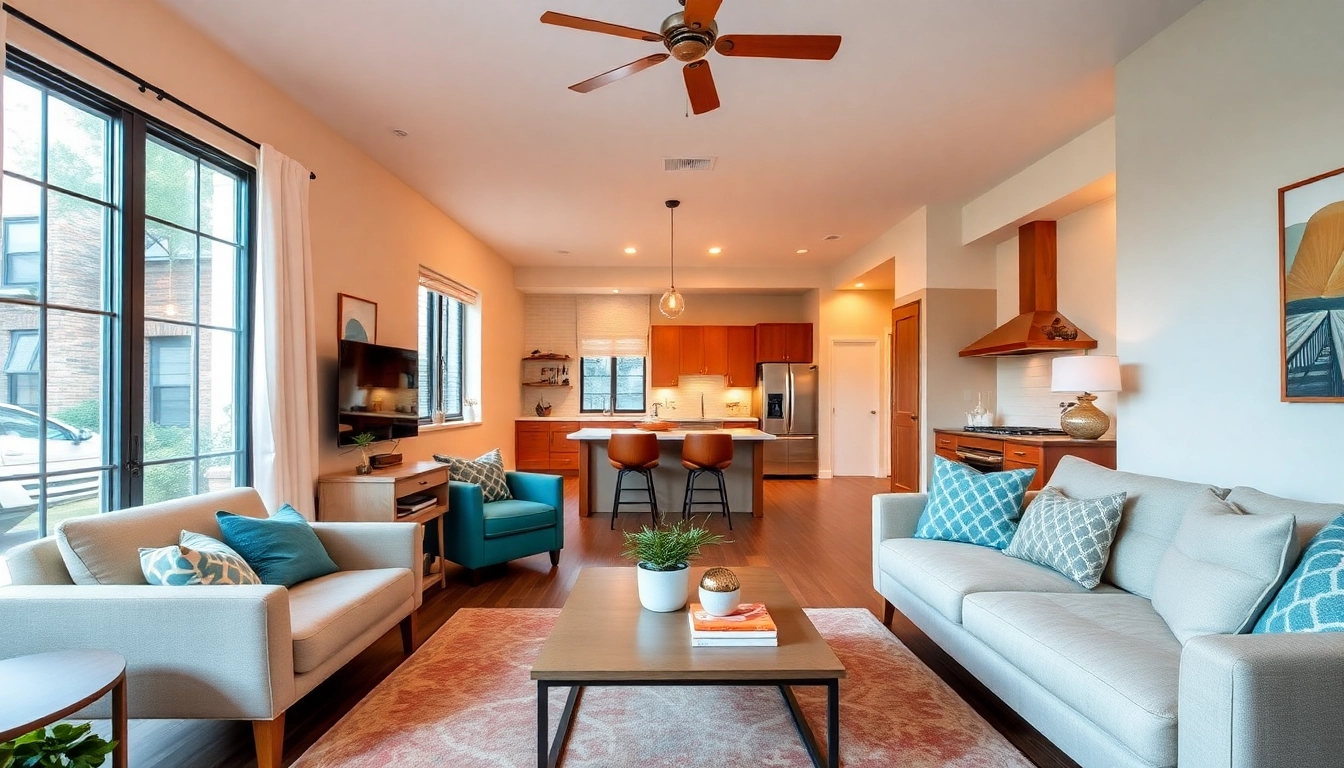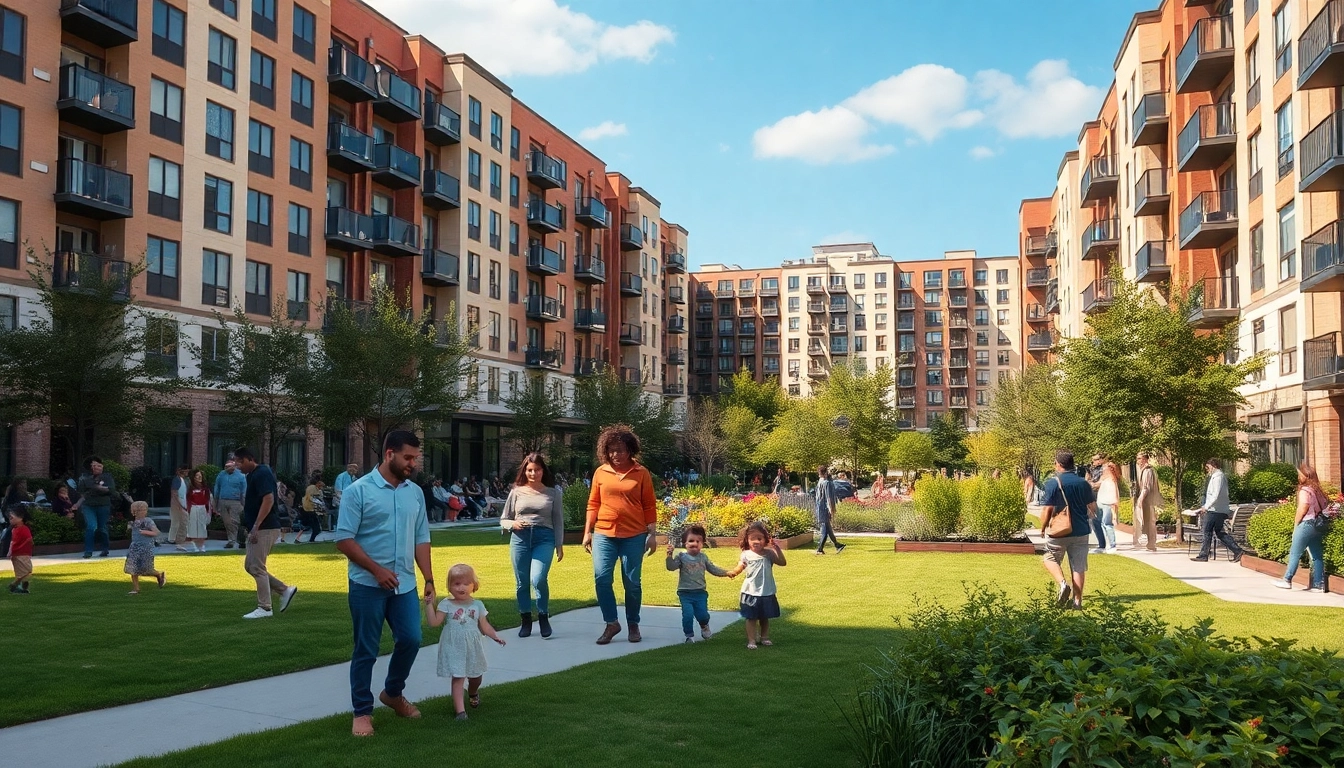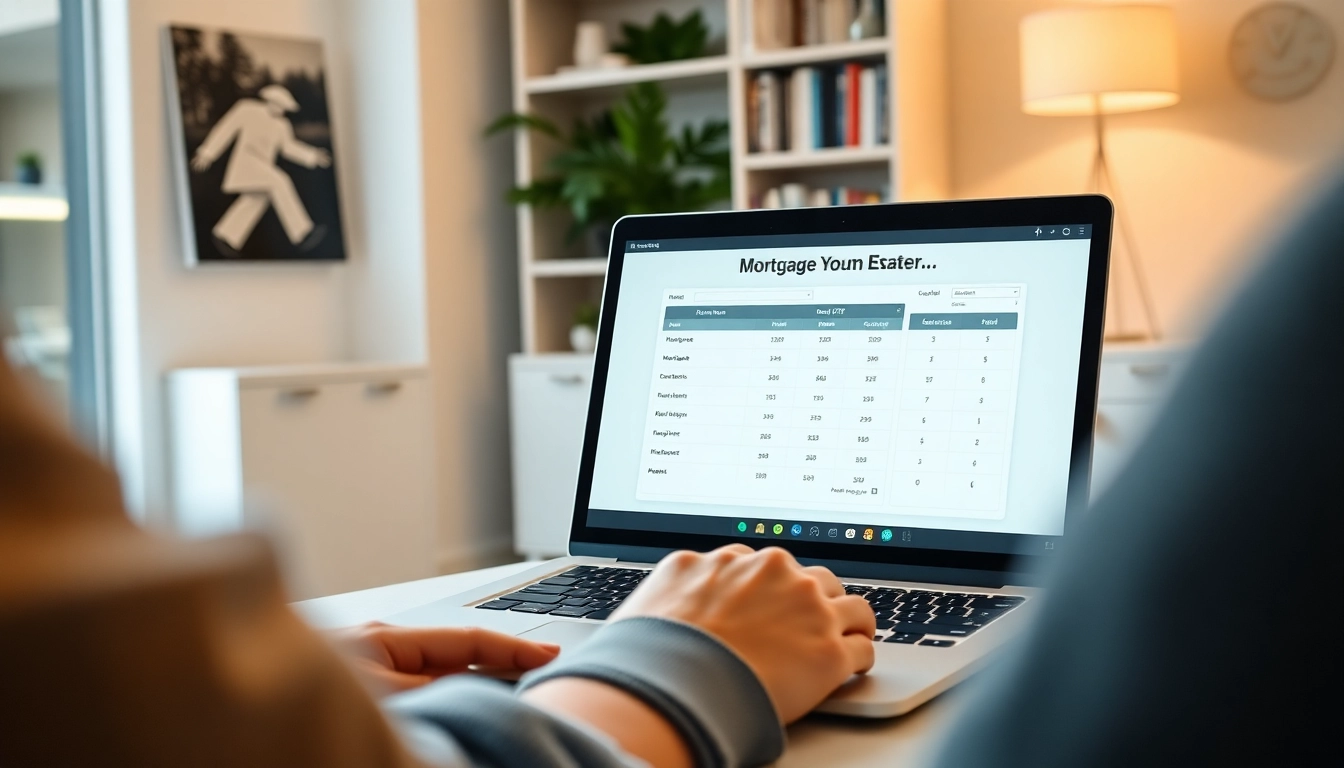Understanding the Airbnb Property Market
The Airbnb property market has exploded in recent years, becoming a lucrative avenue for real estate investors. From urban apartments to rural getaways, properties listed on Airbnb are generating attractive returns for their owners. If you’re interested in diving into this market, first, understand the key dynamics that drive its growth. This article explores the intricacies of investing in an airbnb property for sale, including what makes a property valuable, identifying key markets, and recognizing trends shaping the industry.
What Makes an Airbnb Property Valuable?
Several factors determine the value of an Airbnb property, affecting not only the purchase price but also the potential revenue it can generate. Here are the primary considerations:
- Location: Proximity to attractions, amenities, and public transport significantly enhances a property’s desirability. Properties in trending neighborhoods or near tourist hot spots tend to command higher nightly rates.
- Property Features: Unique and desirable features, such as modern furnishings, spacious layouts, and additional amenities like pools or hot tubs, can increase a property’s appeal.
- Regulatory Compliance: Being in compliance with local short-term rental regulations can contribute to long-term stability and occupancy rates. Properties that can legally operate as short-term rentals are more attractive to buyers.
- Historical Performance: Properties with a previous track record of high occupancy rates and revenue generation are often viewed as safer investments. Buyers should evaluate existing rental analytics to gauge performance.
Key Markets for Airbnb Properties for Sale
Understanding the geographical landscape of the Airbnb market is crucial. Different locations have unique characteristics that affect investment potential:
Urban Areas: Cities with high tourist traffic like New York City, San Francisco, and Miami are prime markets for Airbnb investments. These areas often appeal to business travelers and tourists alike.
Vacation Destinations: Coastal areas, mountain towns, and other leisure destinations, such as cabins in the woods or beach houses, offer great opportunities for seasonal rentals. Properties in these locations can generate income all year round.
Emerging Markets: Areas that currently do not dominate the tourist market but show signs of growth (e.g., smaller towns or cities with upcoming events) can pose great investment opportunities. Investors should look for places where infrastructure is improving or attractions are being developed.
Trends Affecting Airbnb Property Prices
Airbnb property prices are influenced by various trends in the wider real estate market. These may include:
- Short-Term Rental Regulation: In many cities, increasing regulations are being put in place, which can limit the number of short-term rentals available. Properties that function well within these regulations may retain their value better.
- Market Competition: As more investors enter the Airbnb market, competition heats up. High competition can drive prices down, making it essential to thoroughly analyze market conditions before investing.
- Travelling Preferences: Changes in how people prefer to travel can affect occupancy rates. For instance, a trend towards remote work has increased demand for longer stays in vacation homes.
Financing Your Airbnb Property Purchase
Once you’ve determined the right market and property type, the next step is understanding how to finance your investment. Here, we will explore financing options, budgeting strategies, and considerations for managing your financial commitments.
Explore Loan Options for Airbnb Investment
Securing financing for an Airbnb property can differ from traditional home purchases. Here are common loan options:
- Conventional Loans: Most lenders provide conventional loans for buying investment properties, requiring a higher down payment (usually between 15% to 25%).
- FHA Loans: In some cases, investors can utilize FHA loans if they intend to occupy one unit in a multi-family property, but this is not typical for short-term rental-only properties.
- Hard Money Loans: Hard money loans can also be an option for quick purchases, albeit with higher interest rates and shorter repayment periods.
- Commercial Financing: If you’re purchasing multiple properties or those that significantly exceed standard residential sizes, you may consider commercial loans designed for investment properties.
Calculating Down Payments for Short-Term Rentals
Your down payment will vary depending on numerous factors, including the type of loan and the property itself. Most lenders expect a minimum down payment of:
- 15% to 25%: For conventional loans involving investments.
- 25% or more: For non-owner-occupied properties or more substantial investments.
It is crucial to calculate the complete financial picture, including additional costs such as closing costs, taxes, and maintenance fees, when planning your investment budget.
Managing Your Budget Effectively
Budget management is key to maintaining profitability in your Airbnb investment. Consider the following:
- Operating Expenses: Include all recurring costs like utilities, cleaning fees, maintenance, and monthly mortgage payments in your budget estimate.
- Reserve Funds: Set aside an emergency fund to cover unexpected repairs and vacancies. It’s recommended to maintain at least three to six months of operating costs.
- Revenue Projections: Analyze expected income by looking at similar properties in your area and their occupancy rates. Be realistic with your projections to avoid disappointment.
Finding the Right Airbnb Property for Sale
Finding suitable Airbnb properties requires clear strategies, awareness of available resources, and thorough research.
Top Resources for Finding Properties
There are numerous online platforms and tools designed to facilitate the search for profitable Airbnb properties:
- Real Estate Platforms: Websites like Zillow, Realtor.com, and Redfin allow you to filter properties based on your investment criteria.
- Specialized Listings: Services such as Mashvisor or Rabbu provide listings tailored specifically for Airbnb and short-term rental properties.
- Local Real Estate Agents: Partnering with a real estate agent well-versed in short-term rentals can greatly simplify the process and enhance your search.
Researching Neighborhoods for Vacation Rentals
Understanding the neighborhood you plan to invest in is crucial. Research these key factors:
- Tourist Attractions: Look for properties close to parks, museums, or other attractions to increase booking rates.
- Safety Ratings: Ensure the area has a low crime rate to better attract guests.
- Local Amenities: Access to grocery stores, restaurants, and public transportation improves the appeal of your rental.
Analyzing Previous Rental Performance
Understanding how similar properties have performed in the past can provide insight into potential revenue. Utilize analytics tools to dive into data on:
- Occupancy Rates: Higher occupancy rates suggest strong demand in that area.
- Averaged Daily Rates (ADR): Compare ADRs across properties to assess revenue potential.
- Rental History: Review the historical data of comparable listings to anticipate future performance.
Maximizing Returns on Your Airbnb Investment
Once you’ve acquired a property, maximizing its rental income and guest satisfaction is paramount. This section covers strategies and practices for optimizing your Airbnb investment.
Strategies for Optimizing Revenue in Your Rental
Implementing solid strategies will ensure you attract bookings while maximizing your rental income:
- Dynamic Pricing: Use tools to adjust your rates based on demand, similar to what hotels do. This can include decreasing prices during low seasons or raising them during peak tourism times.
- Offer Unique Experiences: Consider adding experiences or accommodation packages to differentiate your property from others.
- Maximize Listings: Ensure your property is listed on multiple platforms to reach a wider audience.
Best Practices for Property Management
Efficient property management contributes directly to positive guest experiences and high occupancy rates:
- Regular Maintenance: Keeping your property in top condition will encourage favorable reviews and repeat bookings.
- Professional Photography: Investing in high-quality images can significantly impact the attractiveness of your listing.
- Consistent Communication: Maintain prompt communication with guests regarding bookings, check-in details, and local attractions.
Understanding Guest Expectations and Reviews
Your guests’ experience directly affects your overall success as an Airbnb host. Keep these factors in mind:
- Spotless Cleanliness: Ensure your property is clean and welcoming. Many guests highlight cleanliness in their reviews.
- Local Tips: Provide a guidebook with local tips, restaurants, and must-see attractions; this enhances their stay and encourages favorable reviews.
- Acting on Feedback: Regularly assess guest reviews for constructive critique. Use this feedback to improve future guest experiences.
Legal Considerations for Airbnb Properties
Operating an Airbnb property requires navigating a complex web of legal regulations and compliance standards that differ from one region to another. This section outlines essential legal considerations.
Navigating Local Regulations for Short-Term Rentals
Before launching your Airbnb, it is essential to understand local laws governing short-term rentals. Areas packaged with properties may have regulations impacting:
- Rental Licenses: Some cities require landlords to obtain a rental license to operate short-term rentals.
- Limits on Rental Days: Certain locales enforce caps on how many days a property can be rented out.
- Tax Obligations: Ensure you are aware of any specific taxes associated with rental income in your jurisdiction.
Licensing and Permit Requirements
Obtaining the proper licenses and permits is vital to avoiding penalties. These steps typically include:
- Checking local legislation for short-term rentals.
- Applying for any required permits or licenses.
- Maintaining up-to-date records of your rental activities.
Insurance Options for Airbnb Properties
Investing in insurance is crucial to protect your property and assets. Standard homeowners insurance often does not cover short-term rentals, so consider options like:
- Short-term Rental Insurance: Provides comprehensive coverage tailored to short-term rental properties, including liability for injuries or damages.
- Host Protection Insurance: Offered through platforms like Airbnb, it protects hosts against claims from guests.
Choosing the right insurance can safeguard your investment and give peace of mind to you as a property owner.















Leave a Reply